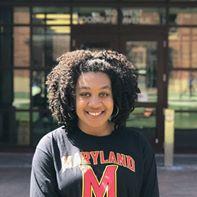-
Posts
560 -
Joined
-
Last visited
-
Days Won
3
Reputation Activity
-
 ZeChocMoose got a reaction from Regimentations in Is an Ivy League degree a "golden ticket" career-wise?
ZeChocMoose got a reaction from Regimentations in Is an Ivy League degree a "golden ticket" career-wise?
Did you face disciplinary action by your state bar? If you go the MSW route - I assume you'll want to get licensed, and they require that applicants have good "moral character." In NY - at least - they ask whether you have had, "any criminal arrests or convictions or disciplinary action in another licensed profession."
-
 ZeChocMoose got a reaction from MettaSutta in Is an Ivy League degree a "golden ticket" career-wise?
ZeChocMoose got a reaction from MettaSutta in Is an Ivy League degree a "golden ticket" career-wise?
In my field, the Ivy League master's program are only 1 year so typically those students hadn't learned enough statistics, research, data analysis to get an entry level job in education research. It seems like they would do okay in the less technical entry level jobs.
I would be more concerned that you are getting the right experience and training through internships/assistantships than the prestige of your degree though...
-
 ZeChocMoose got a reaction from ResilientDreams in Using a class term paper for my thesis
ZeChocMoose got a reaction from ResilientDreams in Using a class term paper for my thesis
I agree. This is generally what students in my PhD program were encouraged to do as well especially for trying out topics for our comprehensive exams and for the dissertation.
I mean, you can't generally take your class paper, do no extra work on it, and then turn it into your thesis because that would be odd and probably wouldn't pass because it is not comprehensive enough - but it's a great jumping point as @fuzzylogician describes.
-
 ZeChocMoose got a reaction from E-P in Using a class term paper for my thesis
ZeChocMoose got a reaction from E-P in Using a class term paper for my thesis
I agree. This is generally what students in my PhD program were encouraged to do as well especially for trying out topics for our comprehensive exams and for the dissertation.
I mean, you can't generally take your class paper, do no extra work on it, and then turn it into your thesis because that would be odd and probably wouldn't pass because it is not comprehensive enough - but it's a great jumping point as @fuzzylogician describes.
-
 ZeChocMoose got a reaction from Cat_Cat in Teacher Burnout
ZeChocMoose got a reaction from Cat_Cat in Teacher Burnout
I would suggest doing a literature review search which is going to give you a more comprehensive answer of research and scholars in this area. Some places to initially look: ERIC (https://eric.ed.gov/), Education Abstracts (https://www.ebsco.com/products/research-databases/education-abstracts), and Google Scholar. If you are currently a student or affiliated with a university, ask your librarian for help with search terms and additional databases to search in.
-
 ZeChocMoose got a reaction from t_ruth in How to be competitive for post docs?
ZeChocMoose got a reaction from t_ruth in How to be competitive for post docs?
Sometimes postdocs are not advertised well or at all so networking can be a key component to securing one. So attending conferences, presenting your research, getting to know faculty outside of your school, etc. can be really helpful on the job market. Also use your dissertation committee and their networks to the best of your ability. They may be aware of additional opportunities/research groups/grants that may be of interest.
In terms of preparation - I would just keep doing what you are doing to secure a TT position. Oh, and also have a viable plan B in case you are not successful in your first round on the job market.
-
 ZeChocMoose got a reaction from Josh J. in Teaching and Learning focused on Higher Ed.
ZeChocMoose got a reaction from Josh J. in Teaching and Learning focused on Higher Ed.
All of the higher ed programs that I am familiar with tend to research teaching and learning focused on the STEM disciplines. Depending on what definition of STEM that you are using that also includes social science fields such as sociology, political science, economics, and psychology. (FYI- higher ed programs are more than just higher ed leadership. There are at least 10-15 programs that focus on research about the field of higher education)
It does sound like examining PhD programs in either higher ed, curriculum & instruction, or joint programs in education and a social science/humanities discipline would be a good bet. Although at the PhD level, it is more about the faculty that you want to work with than the program of study. I suggest finding faculty that you want to work with by reading journal articles that you find interesting and then see where the authors of those articles work and which program(s) they are affiliated with.
-
 ZeChocMoose got a reaction from MettaSutta in For positions in academia, will a J.D. substitute for a Ph.D. since it is also a doctoral degree?
ZeChocMoose got a reaction from MettaSutta in For positions in academia, will a J.D. substitute for a Ph.D. since it is also a doctoral degree?
It is unusual for grad student TAs to be the instructor of record for a class. I know of a couple cases where it has happened - but I wouldn't say it was common. Usually, grad student TAs teach a discussion section or a lab and are supervised by the instructor of record.
What is happening and has been happening for decades is that undergraduate students and some graduate students are increasingly been taught by adjuncts, which are non-tenured track members of the faculty who hold terminal degrees (usually PhDs). These positions vary widely in expectations, benefits, and pay, but usually they are teaching only positions with higher teaching loads than the tenured/tenure track faculty in the same department. Some adjuncts are part-time, have no benefits, are paid a couple thousands dollars per class, and are on either semester-to-semester contracts or year-to-year contracts. Other adjuncts may have it a little bit better with multiple year contracts and have full-time pay for a more reasonable teaching load, but often they have lower salaries and limited benefits compared to T/TT members.
Part of the reason why it is becoming difficult for new PhDs to secure TT positions is because as tenured members retire from/leave the department, they are being replaced by adjuncts not tenured lines. If you are interested in learning more about this, I would look into the adjunctification of higher education. This is not my research area, but a bunch of people in my field are looking into the causes and consequences of this.
-
 ZeChocMoose got a reaction from MettaSutta in For positions in academia, will a J.D. substitute for a Ph.D. since it is also a doctoral degree?
ZeChocMoose got a reaction from MettaSutta in For positions in academia, will a J.D. substitute for a Ph.D. since it is also a doctoral degree?
It stands for one of the Carnegie classifications for colleges and universities. R1 = Research I University. It has the highest research activity of all the universities. Usually the expectation is for tenure track/tenured faculty to spend more of their time on research than teaching and they have lower teaching loads because of it.
-
 ZeChocMoose got a reaction from frenchlover in For positions in academia, will a J.D. substitute for a Ph.D. since it is also a doctoral degree?
ZeChocMoose got a reaction from frenchlover in For positions in academia, will a J.D. substitute for a Ph.D. since it is also a doctoral degree?
No. I am assuming you mean that you want to use your J.D. to be a professor in one of those subjects? That is not how it works. You need a PhD in one of those fields or a closely related one to being able to secure a tenure track position. Even then - you would not be competitive unless you had teaching experience, publications, possibly grant-funded research, great references from well-known scholars, etc. It is very difficult to get a tenure-track position!
The easiest thing at this point if you want to be a professor would be look into job postings for TT professors and instructors at a law school. You can see what qualifications that they are looking for to get a more realistic idea whether you can work towards that goal. My guess is that you will have need to practice law for x number of years, probably written articles for law journals to be competitive, and maybe also have a LLM.
-
 ZeChocMoose got a reaction from historygeek in For positions in academia, will a J.D. substitute for a Ph.D. since it is also a doctoral degree?
ZeChocMoose got a reaction from historygeek in For positions in academia, will a J.D. substitute for a Ph.D. since it is also a doctoral degree?
No. I am assuming you mean that you want to use your J.D. to be a professor in one of those subjects? That is not how it works. You need a PhD in one of those fields or a closely related one to being able to secure a tenure track position. Even then - you would not be competitive unless you had teaching experience, publications, possibly grant-funded research, great references from well-known scholars, etc. It is very difficult to get a tenure-track position!
The easiest thing at this point if you want to be a professor would be look into job postings for TT professors and instructors at a law school. You can see what qualifications that they are looking for to get a more realistic idea whether you can work towards that goal. My guess is that you will have need to practice law for x number of years, probably written articles for law journals to be competitive, and maybe also have a LLM.
-
 ZeChocMoose got a reaction from Waiting&Hoping2018 in Looking for Great Early Childhood Education PhD Programs
ZeChocMoose got a reaction from Waiting&Hoping2018 in Looking for Great Early Childhood Education PhD Programs
The common rule of thumb for PhD programs is to find faculty that you want to work with by searching for and reading their journal articles and then finding out where they are currently employed to see whether the program is a good fit for your interests. It doesn't really help to find the "best" program if there is no one there that you want to work with or has the necessary expertise to chair your dissertation.
-
 ZeChocMoose got a reaction from t_ruth in Looking for Great Early Childhood Education PhD Programs
ZeChocMoose got a reaction from t_ruth in Looking for Great Early Childhood Education PhD Programs
The common rule of thumb for PhD programs is to find faculty that you want to work with by searching for and reading their journal articles and then finding out where they are currently employed to see whether the program is a good fit for your interests. It doesn't really help to find the "best" program if there is no one there that you want to work with or has the necessary expertise to chair your dissertation.
-
 ZeChocMoose reacted to fuzzylogician in Is it tacky and pretentious to include a small photo of yourself on your CV?
ZeChocMoose reacted to fuzzylogician in Is it tacky and pretentious to include a small photo of yourself on your CV?
It’s common in some parts of Europe but it’s never done in North America.
-
 ZeChocMoose got a reaction from t_ruth in Teaching and Learning focused on Higher Ed.
ZeChocMoose got a reaction from t_ruth in Teaching and Learning focused on Higher Ed.
All of the higher ed programs that I am familiar with tend to research teaching and learning focused on the STEM disciplines. Depending on what definition of STEM that you are using that also includes social science fields such as sociology, political science, economics, and psychology. (FYI- higher ed programs are more than just higher ed leadership. There are at least 10-15 programs that focus on research about the field of higher education)
It does sound like examining PhD programs in either higher ed, curriculum & instruction, or joint programs in education and a social science/humanities discipline would be a good bet. Although at the PhD level, it is more about the faculty that you want to work with than the program of study. I suggest finding faculty that you want to work with by reading journal articles that you find interesting and then see where the authors of those articles work and which program(s) they are affiliated with.
-
 ZeChocMoose reacted to TakeruK in Why are there so many more arts and social science than natural science people here?
ZeChocMoose reacted to TakeruK in Why are there so many more arts and social science than natural science people here?
I think this is incorrect and the way you brought it up did sound like you were trying to undermine history. Combined with what you write here later, although you may not intend it to be so, it does come across as you thinking the sciences are superior and that it's harder to have an intelligent conversation in science than it is in history. But this is really not true.
Maybe *you* think it's hard to discuss the most simple topics of Physics or Chemistry because of "expert blindness". Since you already know so much about these fields, it's hard to think about it from an non-expert's point of view.
I also think you are inconsistent in what you define as "simple" aspects of each field. Your history example is just rote memorization. You say you cannot think of an equivalent in chemistry or physics, but you're stating things learned in high school history class, and there are plenty of equivalents in high school science classes. I would say the equivalent to your description of your discussion of the civil war would be a discussion about the phases of matter. The people that know about the civil war at the level you describe would also know that the basic phases are solid, liquid and gas and that water comes in all three forms. I'm just saying that someone stating these three phases of matter is about the same in-depth of a discussion that you describe as one with the historian. That is to say, it's certainly possible to bring up simple physics and chemistry facts so I don't think it's fair to say that everyone knows the basics of history but no one knows the basics of chemistry. Sure, a non-major would not be able to discuss all of the details of a phase transition, or they might not know all the thermodynamical equations or how to read a phase diagram and you might not feel that this isn't a deep discussion or that your conversation partner doesn't have a true understanding of the material. But the historian in your example may feel the same way as you and your discussion on the civil war.
-
 ZeChocMoose got a reaction from t_ruth in Teaching and Learning focused on Higher Ed.
ZeChocMoose got a reaction from t_ruth in Teaching and Learning focused on Higher Ed.
I can't tell - do you want to do research on teaching & learning in higher ed or do you want to learn how to teach in higher ed? Depending on your answer, that would lead to different programs.
-
 ZeChocMoose got a reaction from HannahNS in HESA Advice? (Undergrad vs. Grad institution)
ZeChocMoose got a reaction from HannahNS in HESA Advice? (Undergrad vs. Grad institution)
In my experience, it doesn't really matter that much. Your job prospects in student affairs/higher ed are more determined by which assistantships and internships that you hold in grad school and your full-time experience in the field before grad school.
That being said - I always recommend for people to work in the field for a couple years before getting a master's degree. You'll get more out of the program since it's a practical degree and your starting salary will be higher.
-
 ZeChocMoose got a reaction from E-P in I was offered a GRA position -- But I've never even used SPSS....
ZeChocMoose got a reaction from E-P in I was offered a GRA position -- But I've never even used SPSS....
In my experience, first-year RAs tended to do simpler tasks such as literature reviews, data collection, project management, etc. And usually your first year course work gets you up to speed on quantitative and qualitative analysis so by your second year - you can be contributing to the analysis part of your research project on your research team.
Also the point of a RA is that it is a learning experience - so your PI should also be training you on how to do research and use particular tools such as SPSS. The good news about SPSS is it is one of the easier statistical software packages to learn and the UI is fairly straight forward.
-
 ZeChocMoose got a reaction from TakeruK in Being shy about talking about your accomplishments
ZeChocMoose got a reaction from TakeruK in Being shy about talking about your accomplishments
I am not the biggest fan about talking about my accomplishments either. I don't necessary view it as bragging - I am just more interested in discussing other topics and hearing about what other people are up to. However, I have realized that if you want to stay in academia, you have to figure out how to promote yourself (for a lack of a better term), make people aware of what you are up to, and ensure that people think of you when they think about scholars with your research interests. (I also realize while I don't like talking about my accomplishments, it is part of my job and I need to do it even though I think it is kinda boring and silly.)
For social media, I have seen academics using Twitter to talk about their professional interests/accomplishments and using Facebook to talk more about their personal lives. This is how I tend to use these platforms too. I rarely use LinkedIn - just to keep my CV up to date, but that is about it.
In terms of what other people think when you post items - I feel fairly confident to say that you won't be able to please everyone so you need to figure out what you are comfortable with. The way that I have seen accomplished academics do this well is they post about their big accomplishments and perhaps offer some insights into the accomplishment, but they also mix it up by posting about their colleagues' accomplishments, post articles to lead to thoughtful discussions, etc. So I guess what I am saying is their social media presence is not just a highlight reel of themselves which may feel too much like they are a very pushy salesman for themselves (!), but they mix it up and talk about other cool work going on in the field which is nice and refreshing.
-
 ZeChocMoose got a reaction from Adelaide9216 in Being shy about talking about your accomplishments
ZeChocMoose got a reaction from Adelaide9216 in Being shy about talking about your accomplishments
I am not the biggest fan about talking about my accomplishments either. I don't necessary view it as bragging - I am just more interested in discussing other topics and hearing about what other people are up to. However, I have realized that if you want to stay in academia, you have to figure out how to promote yourself (for a lack of a better term), make people aware of what you are up to, and ensure that people think of you when they think about scholars with your research interests. (I also realize while I don't like talking about my accomplishments, it is part of my job and I need to do it even though I think it is kinda boring and silly.)
For social media, I have seen academics using Twitter to talk about their professional interests/accomplishments and using Facebook to talk more about their personal lives. This is how I tend to use these platforms too. I rarely use LinkedIn - just to keep my CV up to date, but that is about it.
In terms of what other people think when you post items - I feel fairly confident to say that you won't be able to please everyone so you need to figure out what you are comfortable with. The way that I have seen accomplished academics do this well is they post about their big accomplishments and perhaps offer some insights into the accomplishment, but they also mix it up by posting about their colleagues' accomplishments, post articles to lead to thoughtful discussions, etc. So I guess what I am saying is their social media presence is not just a highlight reel of themselves which may feel too much like they are a very pushy salesman for themselves (!), but they mix it up and talk about other cool work going on in the field which is nice and refreshing.
-
 ZeChocMoose got a reaction from nwslp in Is declining my only option crazy?
ZeChocMoose got a reaction from nwslp in Is declining my only option crazy?
You are looking at $95,000 in debt at minimum (combining undergrad and grad). No, don't go - that is way too much. Stay for another year in your current place, work, and volunteer. I also would apply to SLP programs at state schools in the state that you are a resident. Tuition and living expenses will be much lower than trying to go to grad school in NYC unfunded.
-
 ZeChocMoose got a reaction from Neuro_Natural17 in First time grad student moving states alone
ZeChocMoose got a reaction from Neuro_Natural17 in First time grad student moving states alone
My first multi-state move for grad school was fairly easy because I had no furniture or a car so I just flew down to my new city and couch surfed at my friends before I could find an apartment. I want to say it took me a week or so to find an apartment (and a roommate since it was too pricey to live on my own). Then I went to IKEA with a borrowed car and bought a bedroom set. They delivered it a couple days later and I was good to go. This was about a month or so before school started since my assistantship started in the summer. By the time school started, I felt fairly settled in the new city and I knew campus decently well too.
The subsequent moves after acquiring furniture, a car, and a pet were much more complicated...
-
 ZeChocMoose got a reaction from jmp65 in FAFSA for Grad School?
ZeChocMoose got a reaction from jmp65 in FAFSA for Grad School?
FAFSA is the application that you fill out to receive federal student aid and stands for Free Application for Federal Student Aid. It's not a "form" of federal aid - it's the application to get the aid. For undergraduates, aid either comes in grants, loans, or work study from the federal government. Pell grants are usually only for undergraduate students so most likely you are not eligible. For graduate school, this aid comes in loans or work study from the federal government. For loans, you have the choice of Stafford unsubsidized loan or Grad PLUS loan. They have different interest rates, maximum borrowing limits, terms, etc. For more information, I suggest going to this website (https://studentaid.ed.gov/sa/) and reading the information provided.
For assistance from your state for grad school that is fairly unusual. In some high demand fields (education, health, medicine, etc), the state may offer graduate students the ability to borrow more for graduate school, pay the interest on your loans, or loan forgiveness after working x number of years in particular industries. I would suggest looking at the department of education in your state to see if they offer this. Usually, they restrict some of these programs to in-state schools only or you need to be employed in the state. FYI - most state aid is directed towards undergraduate students.
-
 ZeChocMoose got a reaction from MindOverMatter in Advice solicited: adviser fit
ZeChocMoose got a reaction from MindOverMatter in Advice solicited: adviser fit
The one place that I didn't get into for my PhD admission cycle was the program where I only fit one of the faculty member's research interests and the program did not emphasize my preferred methodology. It was disappointing at the time - but looking back on it, the program would have been a terrible fit for me which the admission committee happen to see before I did.
To answer your other question, my advisor and I have very similar research interests, but I tend to study policies at the local and state level and she tends to study them at the federal level. In general, we study a bunch of the same topics though just in different systems/environments/contexts.
I understand how disappointing it can be to not get in the first time around especially since you came really close. It took me two times before I received a PhD acceptance. If you have been communicating with your POI, I would also reach out to her and ask her how you can strengthen your application for next year. I also recommend listing a couple faculty that you would like to work with because eventually you'll need to form a committee of a couple faculty members for your dissertation.











